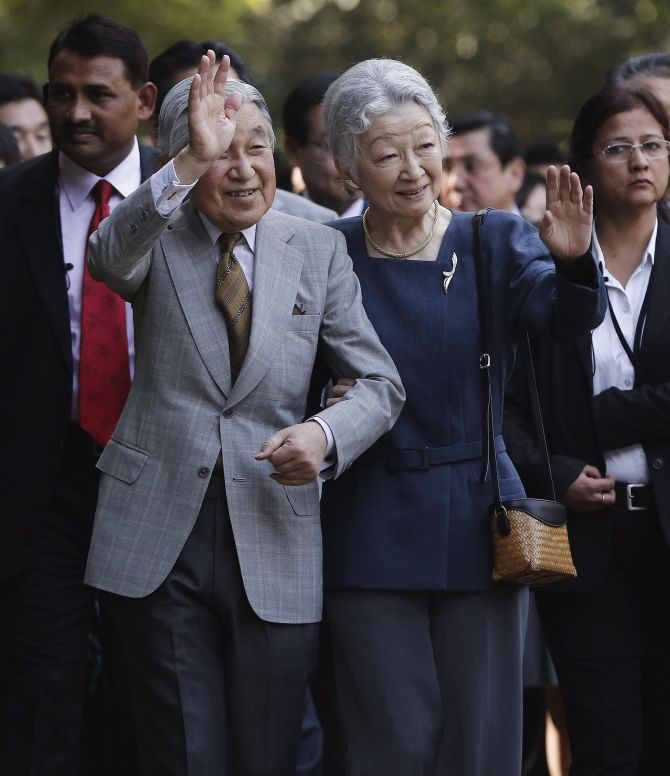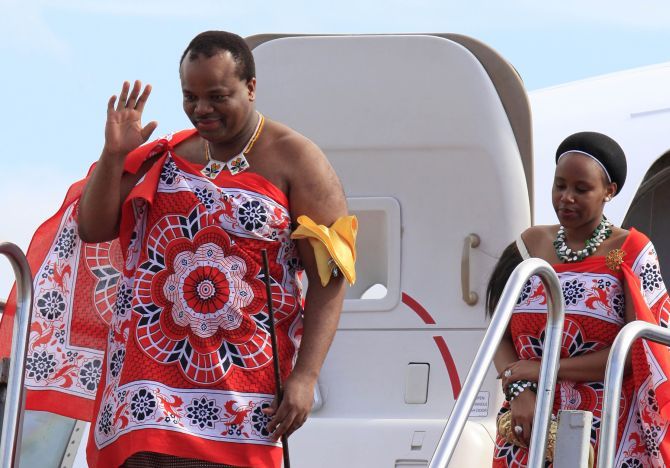With all the attention on Britain’s Queen Elizabeth turning 90 on Thursday, you’d think the United Kingdom had a monopoly on monarchs. However, in reality, there are 26 monarchies in the world, a fascinating network of kings, queens, sultans, emperors and emirs who rule or reign over 43 countries in all.
Here’s a list of the most famous royals families from around the world.
>> Bhutan

Close to home, Jigme Khesar Namgyel Wangchuk formally took the throne in 2008. The Wangchuck monarchy is just over 100 years old, having unified the small Himalayan country under its rule with help from the British Empire.
>> Saudi Arabia

Saudi Arabia is an absolute monarchy, which makes Abdullah bin Abdul Aziz the king and prime minister. The monarchy was founded by Abdul Aziz ibn Saud in 1932.
>> Thailand

King Bhumibol Adulyadej has reigned for a remarkable 67 years, beating England’s Queen Elizabeth, who has served since 1952.
>> Japan

The Japanese monarchy also referred to as the Yamato dynasty is the oldest continuous hereditary monarchy in the world. Emperor Akihito has reigned since 1989 and is, according to legend, the 125th emperor in his line.
>> Swaziland

King Mswati III has been the absolute monarch of this small southern African country since inheriting the crown from his father in 1986, when he was barely 18 years old. His formal title is Ngwenyama, an honorific that also means lion.
>> Brunei

Hassanal Bolkiah, the 29th sultan of Brunei is the head of this family and also the Prime Minister of Brunei Darussalam since 1967. His 1,800-room palace, the Istana Nurul Iman, is considered the world’s largest private residence.
>> Belgium

King Philippe, ascended the throne on 21 July 2013, following the abdication of his father, King Albert II. His position is symbolic but important.
>> Jordan

King Abdullah II has ruled since 1999, and though he isn’t technically the head of government -- Jordan has an appointed prime minister -- he has very real political powers, including the ability to veto any law and dissolve parliament at will.
>> Netherlands

The Netherlands’ King Willem-Alexander took the throne only three months ago, after his mother Beatrix gave up her reign of 33 years. The primary role of the monarch is within the executive branch of the Dutch government: the monarch is part of the government of the Netherlands.
>> Spain

Spain's 75-year-old King Juan Carlos I has little power now, but he was instrumental in bringing democracy to Spain. King Carlos I abdicated the throne for his son Felipe VI in June 2014. King Felipe is the world's third-youngest reigning monarch, after King Jigme Khesar Namgyel Wangchuck of Bhutan and Sheikh Tamim bin Hamad Al Thani of Qatar.









 © 2025
© 2025